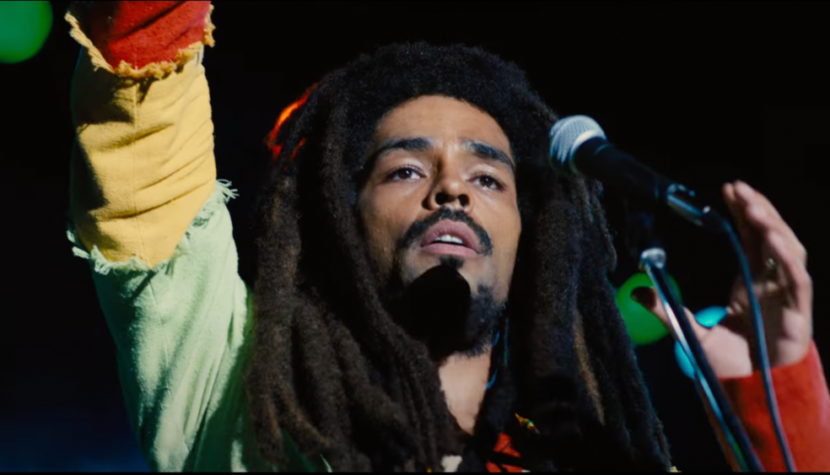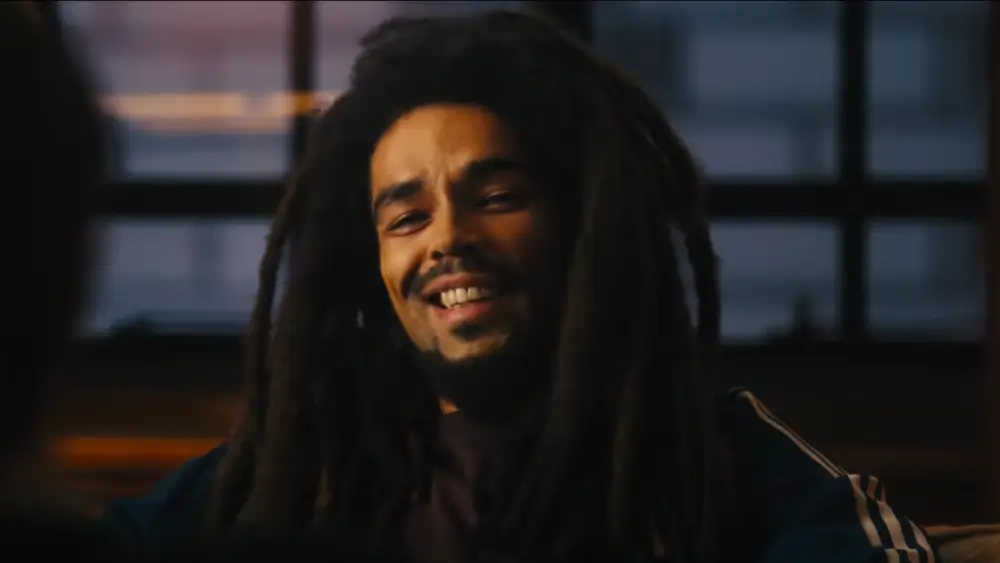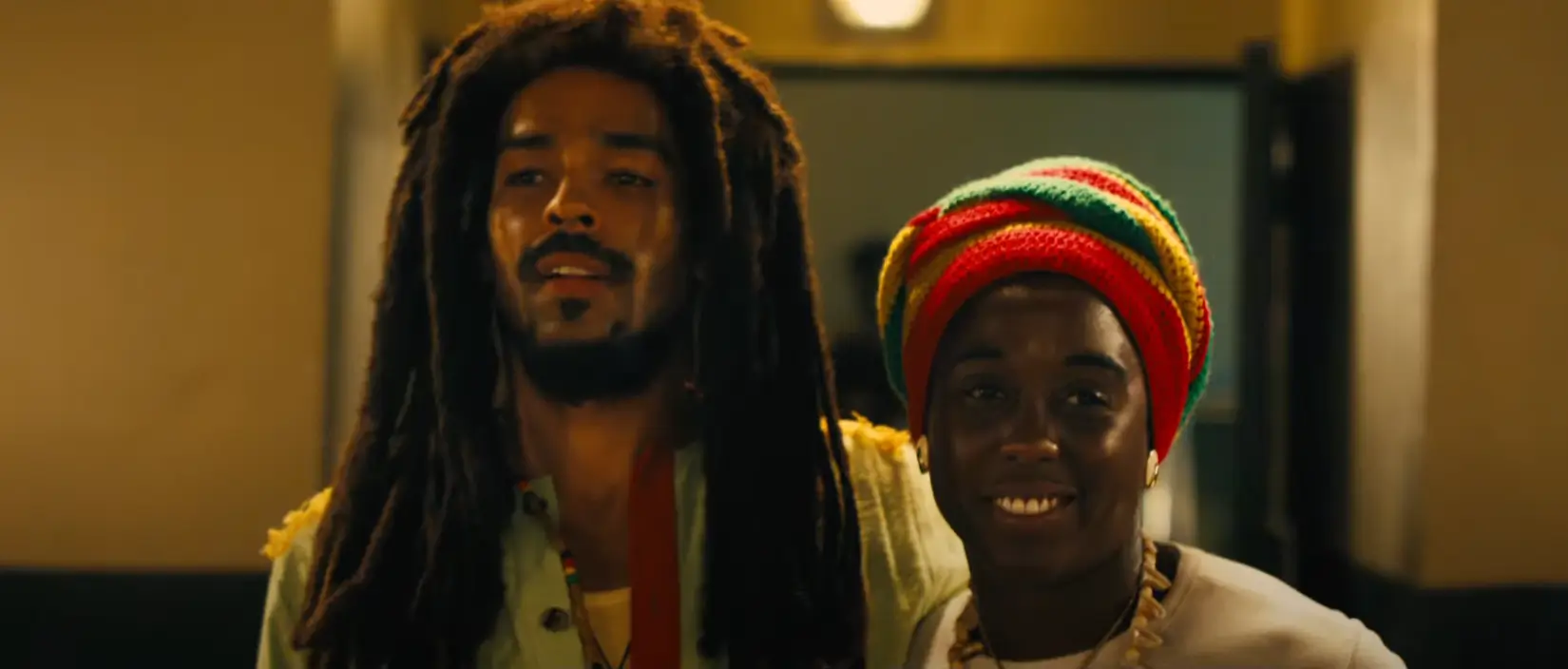BOB MARLEY: ONE LOVE. Bob Marley was a great Rastafarian [REVIEW]

Almost everyone has heard of Bob Marley. Songs like “I Shot the Sheriff” or “No Woman, No Cry” are already timeless hits, firmly rooted in the pop cultural audio sphere. But do we remember Marley himself as clearly? Surely, the image of a smiling man with dreadlocks and a joint in hand is also part of the legacy of the Jamaican musician, but saying more about his person and career may not be so obvious. I’m getting at the idea that presenting an attractive cinematic biography of Marley seems like a good idea, allowing us to delve deeper into his life story and better understand where his music came from. This opportunity is offered by “Bob Marley: One Love.”
Bearing the signature of Plan B studio and Brad Pitt’s stamp of quality as a producer, the film could be an interesting journey into a complex – much more than it sometimes seems from today’s perspective – world of the 70s, when amidst the Cold War muscle flexing of the great powers, decolonization, liberation, and young democratic processes of the so-called Third World were pulsating. However, the hope that “One Love” will offer something cinematically interesting evaporates in the first few seconds when instead of plunging the viewer into the political and social turmoil of Jamaica… it informs them about it through white text on a black background. Even the font chosen by the editors is bland. I really don’t know how many times some filmmakers need to be told: show, don’t tell, for them to internalize it. “Bob Marley: One Love” begins by breaking this cardinal rule and thus sets expectations for the rest of the screening more suitable for a documentary program on Discovery or the History Channel than a cinematic spectacle. And in my case, it also triggers frustration that persists until the end credits.

True, in “One Love” we learn something about Marley, but it feels a bit hastily written – I don’t want to say generated by ChatGPT – fillers between successive sequences illustrated by Marley’s greatest hits. On the positive side, director Reinaldo Marcus Green and screenwriters Terrence Winter, Frank E. Flowers, and Zach Baylin don’t skim over a span of several years, focusing on a period in Marley’s life when he left Jamaica after an assassination attempt and possibly recorded the most important album of his career, “Exodus.” This way, the film at least has the beginnings of a coherent narrative structure. But don’t worry, earlier episodes of the singer’s life also made it into the script in the form of kitschy flashbacks, essentially adding only as much information as had already been introduced in the dialogues. The whole lacks a more interesting dramatic key to guide viewers through the story, and subsequent episodes have a level of excitement comparable to fictional cut-scenes inserted between the talking heads’ discussions. Except that here, those informative sequences seem to have gotten lost in the editing process.
Another thing I have to give credit to “One Love” for is its emphasis on the Rastafarian context of Marley’s work, which gives a bit more meaning and sense to the laid-back image with a joint mentioned at the beginning. It’s just a pity that information about the messianic movement is so watered down that without prior knowledge in this area, it’s difficult to grasp what Marley is really about and what’s happening around him – the creators carelessly even overlook quite significant events related to the Rastafarian movement, even though they occurred precisely during the period in which the story unfolds. But perhaps it’s better to have a few randomly thrown pieces of information than none at all.

Overall, “Bob Marley: One Love” is simply disappointing. Instead of a full-blooded portrayal of an intriguing figure like Marley undoubtedly was, we get a mishmash intertwining a few facts, a few digressions about Rastafarian ideology, and a collage of hits authored by the main character. No thread seems deepened, no role sufficiently polished, and it’s also hard to extract any clearer moral from the story. Maybe that Bob Marley was cool. Or that he strongly believed in Rastafarian ideology. Or that “Exodus” represented a completely new approach to Marley’s music (why – well, answers are hard to come by, but it’s important that it did). Oh, maybe that Michael Gandolfini appearing in the episode increasingly resembles his father. Either way, it’s a bit sparse for an almost two-hour biographical-historical film. Those interested in the topic are better off turning to written sources.

